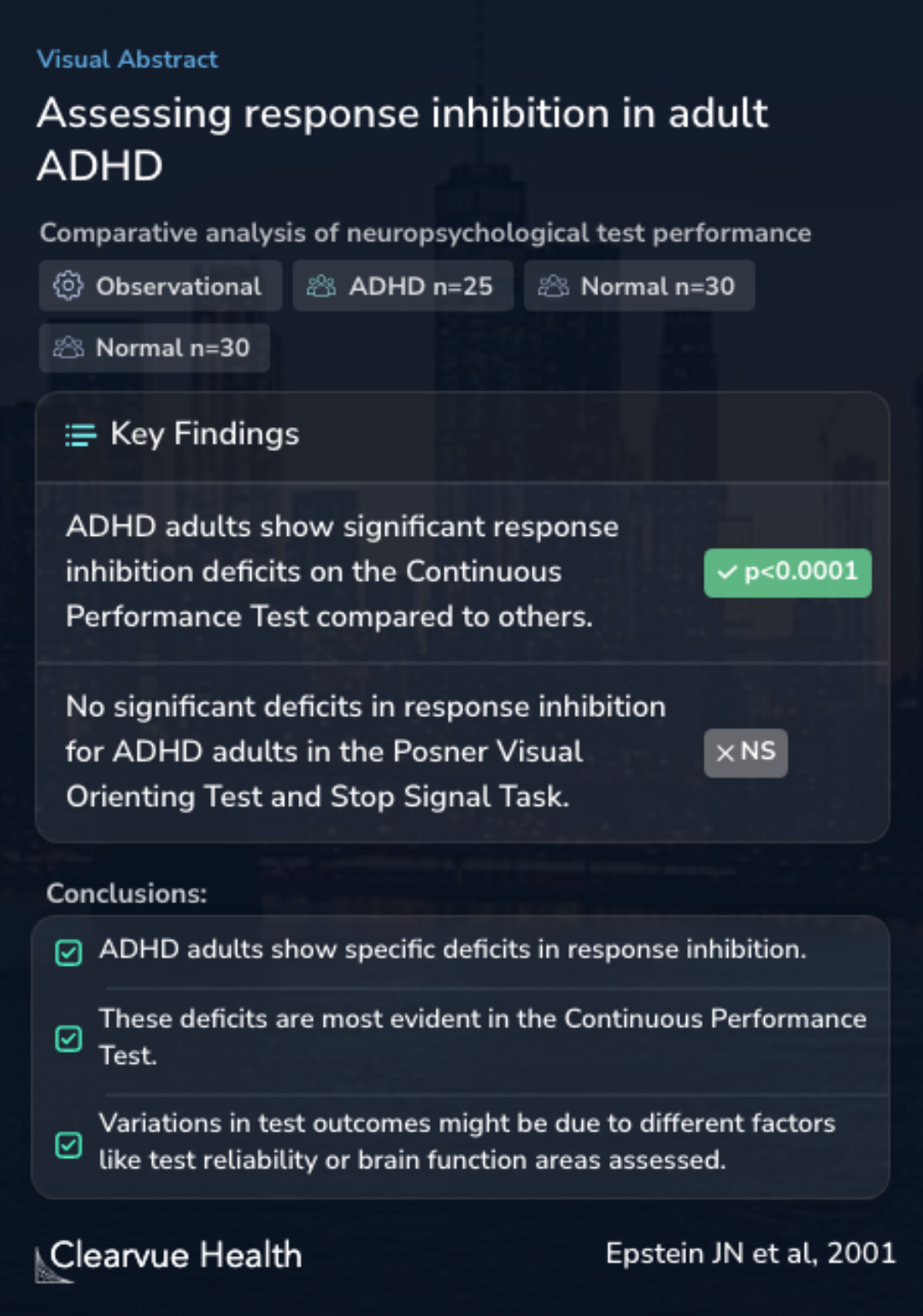Neuropsychological assessment of response inhibition in adults with ADHD
Assessing response inhibition in adult ADHD
Epstein JN, Johnson DE, Varia IM, Conners CK

Objectives
The study aimed to delve into a crucial aspect of Attention Deficit Hyperactivity Disorder (ADHD) – specifically, a potential deficiency in response inhibition. This concept refers to the ability to control one’s immediate reactions or impulses, which is often challenging for individuals with ADHD.
Several theoretical models suggest that the core deficit of ADHD is a deficiency in response inhibition.
Methods
This exploration involved a comparative analysis of neuropsychological test performance, classified as observational in nature. The study involved 25 adults with ADHD, 15 adults with anxiety disorders, and 30 adults considered normal, who underwent three specific neuropsychological tests targeting response inhibition capabilities. These included the Continuous Performance Test, Posner Visual Orienting Test, and the Stop Signal Task.
Twenty-five adult ADHD patients, 15 anxiety-disordered adult patients, and 30 normal adults completed three neuropsychological tests of response inhibition: the Continuous Performance Test, Posner Visual Orienting Test, and the Stop Signal Task.
Results
The results highlighted a significant aspect: adults with ADHD exhibited notable deficits in response inhibition, but this was evident only in the Continuous Performance Test. Interestingly, these deficits weren't observed in the other two tests - the Posner Visual Orienting Test and the Stop Signal Task. This finding indicates a specific challenge in response inhibition for the ADHD group, confined to particular types of tasks.
ADHD adults demonstrated response inhibition performance deficits when compared to both normal adults and anxiety disordered adults only on the Continuous Performance Test.
Conclusions
The varied outcomes across different tests suggest that response inhibition issues in adults with ADHD may be influenced by the nature of the tests themselves. These differences could be attributed to how each test measures response inhibition or the specific brain functions they assess. This insight contributes to a more nuanced understanding of ADHD and its impact on response inhibition.
Differing results between tasks may be due to differences in test reliability, task parameters, or the targeted area of brain functioning assessed by each test.
Key Takeaways
Context
Linking this study with other research in the field provides a broader perspective. For instance, a study by Alderson et al. in 2008 examined how children with and without ADHD respond to stop-signals and go-signals. They found that kids with ADHD had slower and more variable responses, suggesting that ADHD might involve a slower reaction to visual signals rather than a deficit in stopping behavior.
Another study by Wodka EL et al. in 2007 focused on children with ADHD and their performance on various go/no-go tests. This study found that children with ADHD made more errors across all test types compared to controls, indicating that response inhibition is a significant challenge for them.
These additional studies reinforce the complexity of ADHD and its effects on response inhibition, highlighting the variability in how it manifests across different tasks and age groups.